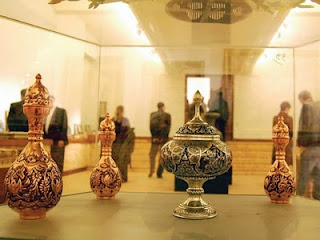Sana Jamal
ISLAMABAD:
Kaam hai mera taghayyur, naam hai mera shabaab, mera na’ara: inqilaab-o-inqilaab-o-inqilaab (My task is change, my name is youth! My slogan: revolution and revolution and revolution!) These words of Josh were recited by the key speakers of the conference reminding the audience of one of the greatest revolutionary poets and a dominant figure of Urdu language, Josh Malihabadi.
Josh was remembered as Shaayar-e-Inquilaab (Poet of the Revolution) by admirers of Urdu literature on his 29th death anniversary at Josh Literary Conference, arranged by Josh Adabi Foundation in collaboration with National Language Authority (NLA), and held at the premises of NLA on Tuesday.
The speakers of the event included Dr Farooq Sattar, MQM Parliamentary Leader and Shabnam Shakil, a poet and educationist, Iftikhar Arif, Chairman NLA; Dr Yahya Ahmed; Afshan Malik, poetess, and Dr. Ghazanfar Mehdi.
Iftikhar Arif called Josh “an influential poet and a giant literary figure of Urdu language” and said that besides poetry, the prose by Josh is also noteworthy. He also talked about Josh`s prolific poetic work, his prose and contribution for the Anjuman-i-Taraqi-i-Urdu for compiling a comprehensive Urdu dictionary under the leadership of Maulvi Abdul Haq.
The speakers at the conference lamented that Josh has not received due recognition as he has been ignored by the authorities and literati over the years.
The grandchildren of Josh, Farrukh Jamal and Tabassum Ikhlaq regretted lack of official recognition for the poet. Ikhlaq pointed that “despite 29 years have passed since Josh has left the world, there is not a single street or avenue in Islamabad to recall his achievements in the field of literature.”
Shabnam Shakil said that “Josh should not only be remembered on his birth or death anniversary but the work of Josh should be part of the national curriculum.” She regretted that the new generation was completely unaware of national literary greats, including Josh and urged that the government should play its due role to educate the young generation.
Speaking on the occasion, Dr Farooq Sattar called Josh – “the poet of revolution and resistance.” Sattar urged Pakistanis "to follow the teachings of Josh and raise the banner of resistance against all sorts of oppression and repression."
Josh was fluent in Urdu, Persian, Hindi and English and his poetry collections include the Paighambar-e-Islam, Shula-o-Shabnum, Fikro-Nishat, Sumbul-o-Salasal, Maujood-o-Mufakir, Aroos Adab, Awaz Haq and Dewan Josh. He also wrote prose and published works include Auraq Zareen and Muqallat Josh while his autobiography, is titled ‘Yaadon ki Baaraat’ (‘A Cavalcade of Memories’), informed Malik Fida ur Rehman.






















